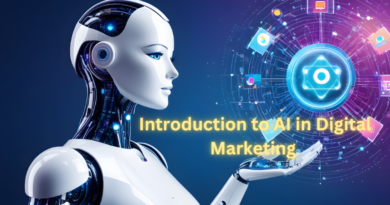How AI is Revolutionizing the Automotive Industry?
The automobile industry is significantly evolving due to AI technology being a core driving force behind the change. AI technologies are introducing changes in how automobiles are developed, produced, and operated, presenting nearly limitless possibilities for development. In this blog, we’ll explore how AI is revolutionizing the automotive industry, highlighting its impact on various aspects of the sector.
Introduction to AI in the Automotive Industry
Artificial intelligence is the capability of a computer system to mimic human intelligence capabilities in learning and decision-making. In the automotive industry, artificial intelligence can be described as all the technologies that are associated with it, such as machine learning, computer vision, and natural language processing. They are now being used to improve the key attributes that define cars, including performance, safety, and overall experience, and thus, AI is fundamental to the advancement of this industry. An Artificial Intelligence Course in Chennai provides essential insights into these evolving technologies.
Enhancing Safety with AI
Advanced Driver Assistance Systems (ADAS): ADAS, or Advanced Driver Assistance Systems, is probably one of the biggest and most paradigm-shift uses of Artificial Intelligence in the automotive Industry. It is usually implemented in cars and uses artificial neural networks to receive information from various sensors, such as cameras and radars, to assist the driver in avoiding an accident and improving safety. Another range of advanced options, such as lane-keeping assist, adaptive cruise control, and automatic emergency braking, are based on artificial intelligence because only it can interpret data obtained from the vehicle sensors and make decisions within milliseconds.
Predictive Maintenance: AI also has an important function in managing predictive maintenance as well. AI can identify various anomalies; by taking into consideration the data from the car’s sensors and past history of services and repairs, it is possible to foresee failures to happen. This is important as it enables one to prevent the occurrence of problems and make the vehicles last longer hence reducing on the frequent maintenance expenses.
Transforming Vehicle Design and Manufacturing
Design Optimization: AI-driven simulations and modelling tools are changing the way vehicles are designed. AI can sift through massive datasets to produce lightweight shapes that are better suited for aerodynamics, fuel economy or durability. This results in more novel designs and even shorter development cycles, translating to manufacturers being able to get their new models on the road sooner rather than later.
Automated Manufacturing: In the manufacturing sector, artificial intelligence (AI) integrated robotics and automation systems enhance production and accuracy. The use of algorithms in robot technology can also enable robots with assembly capabilities to be more accurate and more precise, thus increasing speed to prevent errors. AI also helps in, constant quality check by assuring that each manufactured vehicle has meets or exceeds the quality standards of safety and performance.
Advancing Autonomous Vehicles
Self-Driving Technology: It is the future prospect to explore AI in real potentiality using autonomous cars. The different technologies in play for driving autonomous cars is — Computer Vision, Machine Learning and sensor fusion are being used to navigate through the roads at high speeds using Self Driving Vehicles. At the moment, such companies as Tesla, Waymo, and Uber are pushing boundaries in the development of fully autonomous vehicles and surmounting technical and legal barriers to make it happen.
Enhanced Navigation Systems: AI-based navigation systems are another way to enhance the driving experience. These utilize a combination of real-time traffic data, machine learning and predictive algorithms to offer more efficient routing suggestions that can steer users away from the worst jams before they happen. This enables the job to respond quickly and robustly in changing conditions or user choices, providing a much more customized navigation experience.
Improving User Experience
Personalized In-Car Assistants: Self-driving cars and artificially intelligent personal assistants are being adopted more and more in contemporary cars. These assistants employ the use of natural language processing that enables them to recognize voice commands to enable the driver to interact with the car without having to use his or her hands for functions like; Ac controls, stereo, maps, among others. This makes the experience more convenient and safe since it reduce one’s distraction while driving.
Connected Vehicles: AI is also helping vehicles to be smarter and able to communicate with other vehicles as well as industries creating a more connected way of driving. Since connected vehicles can communicate with other vehicles on the same road, road conditions or hazards, among others, can be relayed, and this enhances safety and efficiency. Artificial Intelligence Course in Bangalore offers deeper insights into how these technologies are shaping the future of connected driving.
Artificial intelligence cannot be doubted in the automotive industry as it comprises great opportunities to innovate products and services by providing safe methods and solutions to develop automobile manufacturing. Self-driving cars pay attention to each of the passengers in the car, and AI is transforming the automobile industry greatly. With the advancement of AI in increasing capacity, the improvement of contribution to the automobile industry is also possible, and this will create more possibilities in the future. That is not the future about driving that is defined by place to place but rather using the unprecedented power of AI to drive more intelligently, more safely, and more efficiently.



